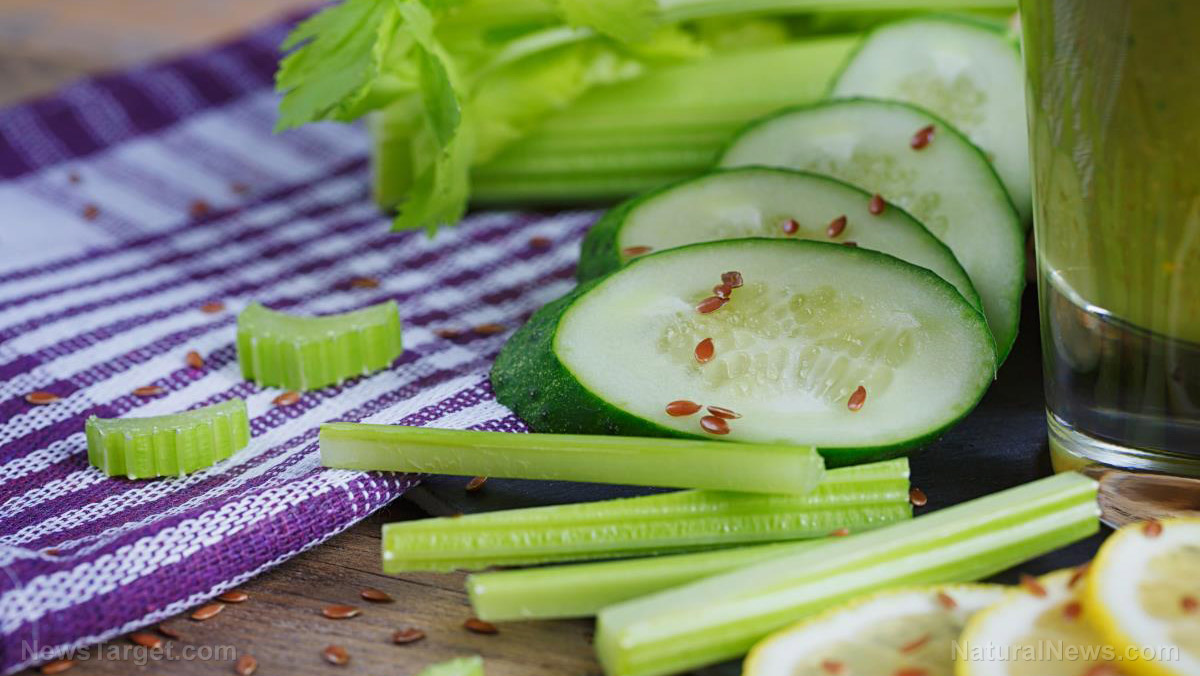12/07/2021 –
Cucumber isn’t as popular as kale or spinach, but this hydrating vegetable offers amazing health benefits. According to an animal study, certain compounds in cucumber can help boost memory and even prevent Alzheimer’s disease.
Study findings suggest that the flavonol fisetin in cucumbers can protect against memory loss. Other studies have also concluded that cucumbers can prevent the spread of cancer.
The nutritional profile of cucumbers
Cucumbers are considered a superfood because they’re full of many essential vitamins and minerals.
An 11-ounce (300-gram, g) serving of unpeeled, raw cucumber contains:
45 calories
11g of carbs
2g of fiber
2g of protein
0g of total fat
Vitamin K (62 percent of the recommended daily intake (RDI))
Vitamin C (14 percent of the RDI)
Potassium (13 percent of the RDI)
Manganese (12 percent of the RDI)
Magnesium (10 percent of the RDI)
The typical serving size is only about one-third of a cucumber, so eating a standard portion would provide about one-third of the nutrients above. Cucumbers also have a high water content — in fact, they are about 96 percent water.
To maximize their nutrient content, eat cucumbers unpeeled. Peeling cucumbers reduces the amount of fiber you can get, along with certain vitamins and minerals.
Fisetin and brain health
According to the study conducted by researchers from the Salk Institute for Biological Studies, cucumbers can help prevent memory loss linked to aging and Alzheimer’s disease.
For the study, the researchers observed mice genetically inclined to develop symptoms of Alzheimer’s, including memory loss. They found that giving the animals a daily dose of the flavonol fisetin helped slow and prevent memory loss and other cognitive impairments.
The researchers also reported that there was an improvement in cognitive functiondespite the continued formation of amyloid plaques, which are brain proteins believed to be behind the development of Alzheimer’s. Their findings suggest that administering fisetin helped improve the memory of animals without signs of Alzheimer’s.
Based on these results, the researchers concluded that fisetin in cucumbers has “astounding implications for reducing the occurrence of Alzheimer’s and memory disorder in humans.”
Researchers believe that fisetin improves memory by “turning on” a cellular pathway linked to the retrieval of memories. According to earlier research spanning more than a decade, fisetin has anti-inflammatory and antioxidant properties that can help protect brain neurons from aging and age-related defects.
Cucumbers and strawberries are great sources of fisetin, but the flavonol can also be found in other plant-based foods.
As shown by studies linking fisetin to better memory and the prevention of Alzheimer’s, people who are at risk of Alzheimer’s and those who wish to boost their brain health would benefit a lot from incorporating cucumbers, strawberries and other sources of fisetin into their daily diet.
Eat more cucumbers for hydration and better gut health
Cucumbers aren’t just good for your memory and Alzheimer’s prevention. If you often experience digestive issues, eating cucumbers can help relieve your symptoms. Cucumbers are alkalizing, meaning they can help regulate your body’s pH and neutralize acidity.
Additionally, consuming cucumbers can help support regular bowel movements. Dehydration is a major risk factor for constipation because it can alter your water balance and make the passage of stool difficult.
Cucumbers are high in water and they promote hydration. This is important because staying hydrated helps “improve stool consistency, prevent constipation and help maintain regularity.” Cucumbers also contain dietary fiber, which helps regulate bowel movements.
Hydrating cucumbers can also help regulate blood pressure and normalize body temperature when the weather is hot. Data suggests that cucumbers can maintain the healthy structure of connective tissues in the body, like those found in your ligaments, cartilage, tendons, bones and muscles.
Cucumber juice is also a natural diuretic that may help prevent kidney stones. If you are suffering from inflammation in the joints and other areas of the body, cucumbers can also help reduce uric acid, which, at high levels, can cause pain.
Cucumbers are also good for your hair and skin because they can promote healthy hair growth and skin tone. Incorporating cucumbers into a well-balanced diet can help reduce the effects of skin disorders like acne, eczema and psoriasis.
How to incorporate cucumbers into your regular diet
Cucumbers have a mild, uniquely crisp and refreshing flavor. You can add fresh cucumber slices to salads and sandwiches or make pickles for various dishes.
If you’re trying to lose weight, you can enjoy cucumbers slices as a refreshing, low-calorie snack. Alternatively, you can pair cucumber sticks with hummus, olive oil, salt or salad dressing to add more flavor.
You can also use cucumbers to make a thirst-quenching green smoothie.
Eat your greens and add cucumbers to your diet to boost your brain health and improve your memory.
Sources:



